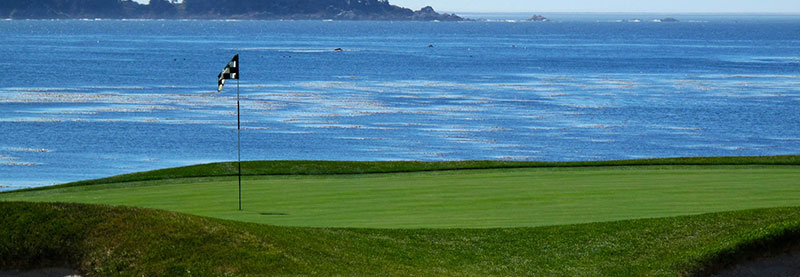Intellectual Property Insights from Fishman Stewart
Mini Article – Volume 24, Issue 12
Share on Social

US Congress Considers Copyright Protection for Golf Courses
By Kristyn Webb
In February 2024, proposed legislation was introduced in US House of Representatives which would extend copyright protection to golf courses. The bill is titled “Bolstering Intellectual Rights against Digital Infringement Enhancement Act” or the “BIRDIE Act” and would cover certain golf course features including:
- landscaping;
- an irrigation system;
- a path;
- a golf green;
- a tee;
- a facility in which golf is practiced;
- a bunker;
- a lake; and
- a topographic feature.
Notably, the bill excludes courses for “mini golf, or other similar game,” but would otherwise automatically extend protection to golf courses created after 1990. It appears Congress may be concerned about LIDAR being used to obtain scans of popular golf courses, and then being used to replicate those courses in virtual environments. Why travel all the way to Scotland, when you can play the course by popping on a VR headset in the comfort of your own home? Presumably, mini golf is not a concern because, while the fun is priceless, the courses do not generate great profits.
Supporters, such as golf course architects and owners, say that this bill would provide necessary legal protection for the hard work and creativity that goes in to designing golf courses. Critics say the bill is protectionist and goes too far in granting copyright protection to the ground under our feet.
Because golf courses are constantly changing as the trees lining the course grow, bunkers are re-edged, and mowing lines shift, it may be difficult to determine what precisely is being protected or copied under this bill. Moreover, in the US, golf has historically been tied up with issues of racial segregation, social stratification, and exclusion. Perhaps using copyright law to erect a barrier to access the sport in a virtual environment is a step backwards policy-wise. While protecting intellectual property is important, the bill as written may not be a hole in one.
While the bill has bipartisan support, it has not progressed far and remains in committee. We will keep you updated with developments.
Kristyn Webb is the Group Leader of Fishman Stewart’s Copyright Practice Group, and holds a Master’s Degree in Copyright Law from King’s College London.



Published June 28, 2024
Related Content from Fishman Stewart
By 1930, efforts began in New York to replace Mother's Day with Parent's Day because men were more than just breadwinners. Those efforts didn't catch on, probably because in that era, women often spent more time in the home.
In February, Nike and Skims announced that they will be working together on a new brand, NikeSkims. The co-brand will create a new line of training apparel, footwear, and accessories specifically designed to meet the unique needs of women athletes.
Generally, federal courts have exclusive jurisdiction over copyright cases, and often, this presents an insurmountable paywall for individual artists and small businesses to vindicate their rights, especially where the value of the individual copyrighted works are relatively low.
Dedicated to raising public awareness about the importance of encouraging innovation and creativity throughout the world, the World Intellectual Property Organization (WIPO) annually observes World Intellectual Property Day on April 26 to showcase the role that patents, trademarks, industrial designs, copyrights and trade secrets play in our everyday lives.
Hold onto your foam fingers, sports fans – college sports just got a whole lot more interesting! The latest updates to Name, Image, and Likeness (NIL) rules are making student-athletes bigger than ever, and it’s not just about the game anymore.
Did a federal court in Louisiana recently decide that US copyrights are global rights? It seems so.
One of his most famous songs, “Lose Yourself” was recently at the center of a lawsuit. In 2019, Eminem’s publishing company Eight Mile Style sued Spotify claiming that Spotify streamed a number of its musical compositions without proper licenses.
One of the most common challenges is whether AI should be free to train on data that is protected by copyright and owned by third parties without first obtaining permission.
The U.S. Copyright Office (USCO) recently published its latest report on AI and “copyrightability.” In short, the USCO considers only some AI-generated works to be sufficiently creative as to deserve copyright protection, and thus, registration.
Back in the 1940’s assignments by independent contractors could be permanent and irrevocable. Things changed in 1976, when Congress overhauled the Copyright Act.
IDENTIFYING, SECURING AND ADVANCING CREATIVITY®












